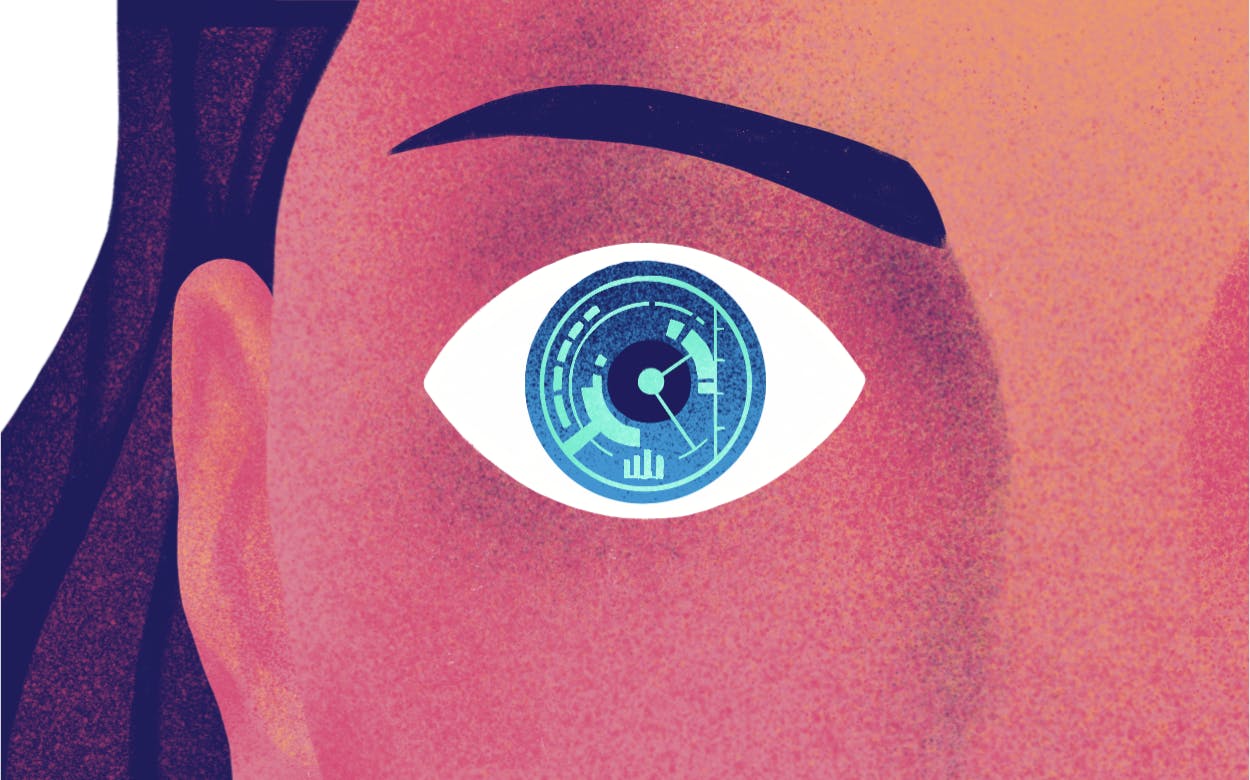Farsighted innovators envision the contact lenses of the future
Smart contact lenses have been a popular concept in science fiction for many years. Slowly but surely, they are becoming a reality.

Drug-releasing contact lenses hit the market
In March, the FDA approved daily disposable corrective lenses from Johnson & Johnson—lenses that can release anti-allergy drugs.
The contact lenses contain ketotifen, an antihistamine designed to prevent itchy eyes from allergies. Until now, ketotifen has been given through eye drops. But clinical trials showed that drug-releasing lenses relieved itchy eyes in as few as three minutes, working for as long as 12 hours.
Scientists have been developing drug-coated contact lenses for decades. Ideally, these treatments would deliver a more consistent dose of a drug than eye drops, and they would be less uncomfortable than needles or other invasive delivery methods. But finding the right blend of materials has proven difficult.
Experts believe this is the beginning of the contact lens serving as a platform for drug delivery, and researchers hope that the lenses could one day help treat cataracts and glaucoma.
The market: Small lenses, huge business
- Contact lenses are used by over 150 million people worldwide.
- The global market for contact lenses was valued at about $11.5 billion in 2017 and projected to grow to about $19.45 billion by 2024.
- An estimated 45 million people in the U.S. wear contact lenses, according to the CDC.
- The average age of contact lens wearers worldwide is 31 years old.
The next frontier: Smart AR lenses
The 2015-founded company Mojo Vision has developed a prototype for an augmented reality contact lens that puts a display over real-world vision.
The product is still in a prototype phase, but Mojo is working tirelessly on technical refinements.
The breakthroughs in the latest model include a higher screen resolution and integrated battery. The lenses also feature motion sensors, as well as basic communication and power technology building blocks.
There is still a long way to go, but Mojo’s goal is clear. The startup wants to develop a smart contact lens hardware platform that can run apps for different use cases.
Smart lenses enable new application fields
Mojo Vision is convinced that its smart lens enables completely new fields of application beyond strengthening eyesight:
- The startup believes it could one day be useful for people with impaired vision, with the bionic lenses helping partially blind people see things like road signs better.
- Another application opportunity involves "eyes-up" and "hands-free" experiences for competitive athletes.
- Improving visibility in low-light conditions is also on the table—for groups including firefighters, police officers, and bar staff.
Contact lenses that automatically darken when you step into bright sunlight, or detect diseases, or augment reality may sound too good to be true. But gradually, we can get comfortable with the idea that science fiction is turning into science fact.